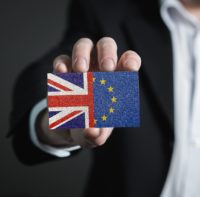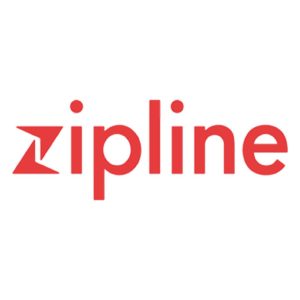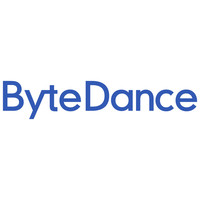EU Commission Approve UK Data Sharing Adequacy Decisions; Zipline Raise $250m
by Grace Dillon on 9th Jul 2021 in News


In this weekly segment, ExchangeWire sums up key industry updates in media, marketing, and commerce, from around the globe. In this edition: the EU Commission approve two new adequacy decisions to permit data sharing with the UK; delivery and logistics company Zipline raise USD $250m; tech giants threaten to leave Hong Kong over proposed privacy law changes; and ByteDance begin selling the AI behind TikTok.
EU Commission gives go-ahead to UK data sharing
The European Union Commission have implemented two new adequacy decisions to allow data sharing between the EU and the UK. Announced last Monday (28th June), the new decisions – which fall under the General Data Protection Regulation (GDPR) and the Law Enforcement Directive respectively – rule that the UK provides consumer data with “an essentially equivalent level of protection to that guaranteed under EU law.”
The move comes after the Commission published two draft adequacy decisions and set up the adoption procedures for each in February. Following this, the EU body examined the UK’s regulations surrounding personal data protection and consulted with the European Data Protection Board, the European Parliament, and the Parliament’s Member States. Having gained the agreement of all these entities, the Commission was able to bring the decisions into force from last Monday.
A key facet of the agreements is their facilitation of the EU-UK Trade and Cooperation Agreement (TCA), which allows information to be exchanged between the EU and their former member state in the aid of judicial and other such official matters. The Commission asserts that two new decisions contain “strong safeguards” to protect against potential breaches, including a ‘sunset clause’, which restricts both to a duration of 4 years.
Zipline raise $250m, secure $2.75bn valuation
 Delivery and logistics start-up Zipline have raised USD $250m(£180.6m) in fresh funding, bringing the company’s valuation up to USD $2.75bn (<£2bn). The firm, who currently focus on delivering essential medical supplies using autonomous electric drones, will use the latest investment to continue to expand their logistics networks in Africa and the US.
Delivery and logistics start-up Zipline have raised USD $250m(£180.6m) in fresh funding, bringing the company’s valuation up to USD $2.75bn (<£2bn). The firm, who currently focus on delivering essential medical supplies using autonomous electric drones, will use the latest investment to continue to expand their logistics networks in Africa and the US.
Launched in 2014 and initially established in Rwanda and then Ghana, Zipline currently own and operate their entire fleet of drones, designing and manufacturing the vehicles, operating software, and launch and landing systems. Yet according to the company’s CEO Keller Rinaudo, it is Zipline’s logistics network that has really helped them succeed; the company have developed partnerships with logistics firms in their current markets (including UPS in Rwanda, Toyota Group in Japan, and Novant Health in the US).
The pandemic proved a boon for Zipline, who were able to extend their operations to deliver personal protective equipment and even COVID vaccines, with the company aiming to have delivered 2.4 million doses by the year’s end. The business are now in the process of applying for a full commercial operating certificate from the US’s Federal Aviation Administration, having operated under an emergency waiver throughout the health crisis.
Online giants consider Hong Kong exit over proposed privacy laws
 Leading online companies Facebook, Twitter, and Google, have threatened to pull out of Hong Kong if the government follow through on proposed changes to the city’s data protection laws. The planned amendments could make the US-based firms liable for cases where web users share individuals’ personal information online in order to endanger them (an act commonly referred to as “doxing”).
Leading online companies Facebook, Twitter, and Google, have threatened to pull out of Hong Kong if the government follow through on proposed changes to the city’s data protection laws. The planned amendments could make the US-based firms liable for cases where web users share individuals’ personal information online in order to endanger them (an act commonly referred to as “doxing”).
The prospective changes were first put forward by Hong Kong’s Constitutional and Mainland Affairs Bureau in May. The proposal focuses specifically on clamping down on doxing, which has become more common after wide-scale protests held in the city during 2019. The amendment would see perpetrators fined up to HKD $1m (£93,240) and jailed for up to 5 years.
In a letter sent to the authorities last month, the Asia Internet Coalition (who count the aforementioned tech giants among their members) protested that the new rules could see staff members subjected to investigation and prosecution over content posted by site users.
Such a reality would represent a “completely disproportionate and unnecessary response” to doxing, reads part of the letter. “The only way to avoid these sanctions for technology companies would be to refrain from investing and offering the services in Hong Kong,” it warns.
ByteDance sell TikTok’s AI
 ByteDance, the parent-company of short-form video app TikTok, have reportedly begun selling the AI behind the prodigious platform’s recommendation algorithm. According to The Financial Times, the Beijing-based firm have launched a new division, BytePlus, through which they can supply TikTok’s technology to other companies.
ByteDance, the parent-company of short-form video app TikTok, have reportedly begun selling the AI behind the prodigious platform’s recommendation algorithm. According to The Financial Times, the Beijing-based firm have launched a new division, BytePlus, through which they can supply TikTok’s technology to other companies.
Companies who have already bought the algorithm behind the social media sensation include Indonesian shopping app Chilibeli, Singaporean travel site WeGo, and US fashion app Goat. The AI has also been snapped up by some businesses in India, where TikTok remains banned over national security concerns.
Per the report, BytePlus enables companies to access the wildly successful recommendation algorithm and “personalise it for their apps and customers”. The new division also provide real-time video effects, automated speech, and text translation tools, as well as data analysis.
Also in the news
– Industry Review: The Service Layer - Reframing the Industry (Part 1)
– Programmatic in JAPAC: Q&A with Andrew Tu, OpenX
– Three Tactics for Marketers to Find Their Next Million Customers
– The MadTech Podcast Special: The future of the open internet
– Global's Mungo Knott Discusses Realising the Programmatic Opportunity in DOOH
– The Expanded Role of Cohort-Based Onboarding in the Future of Marketing
– Adidas's Simon Peel on APS, Brands Listing Other Brands, and Consumers' Ad Attentiveness








Follow ExchangeWire